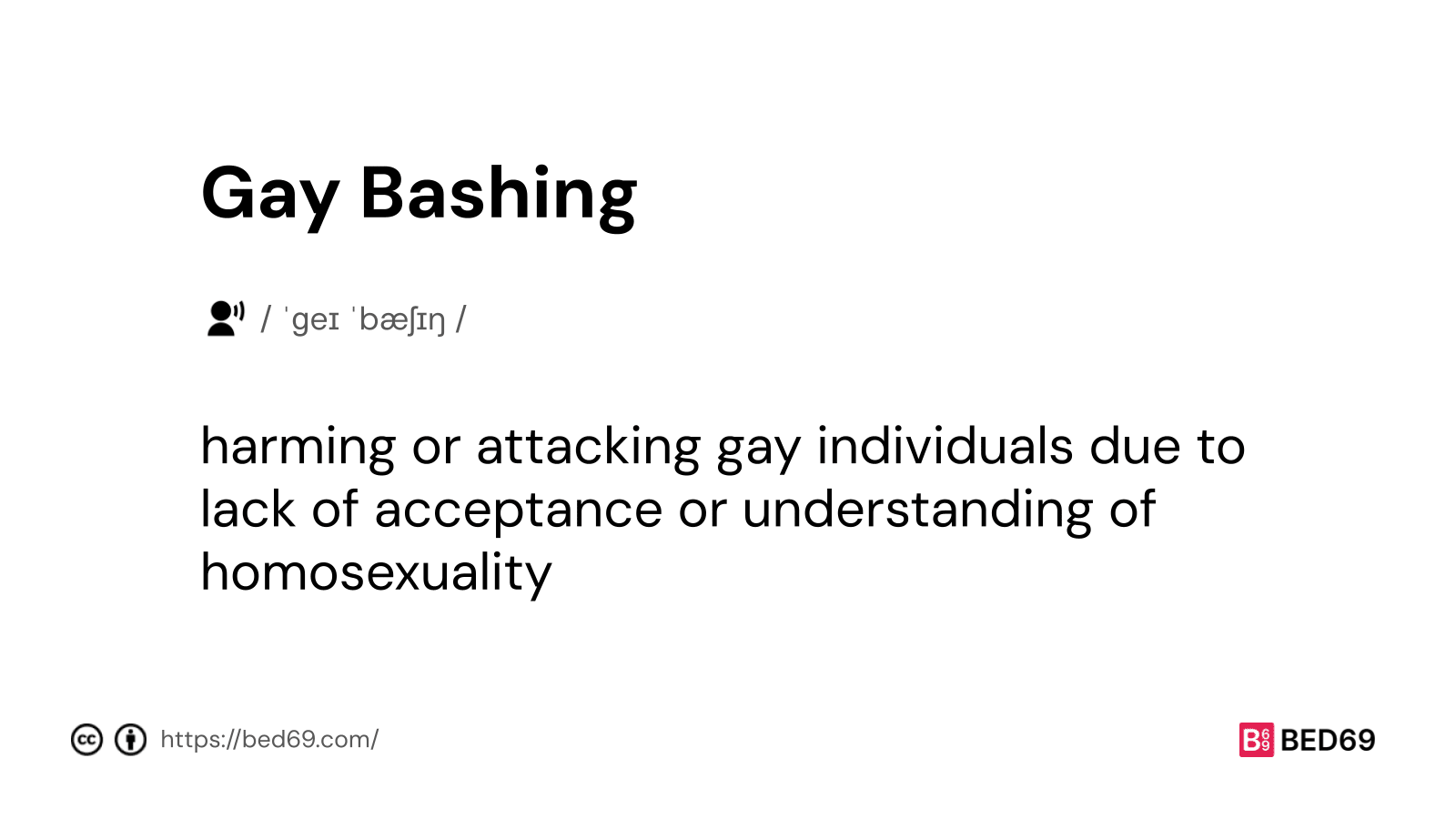What is Gay Bashing?
Gay bashing is when someone attacks a gay person or group because they don’t understand or accept homosexuality. This can be done through physical violence like hitting or even murder, or with hurtful words like insults or threats. It’s a hateful act that can happen anywhere.
Gay Bashing pronunciation: / ˈɡeɪ ˈbæʃɪŋ /

What Motivates Gay Bashing
Gay bashing is often motivated by fear, ignorance, and intolerance towards homosexuality. Many attackers do not comprehend or accept differences in sexual orientation, leading to discriminatory actions. This lack of understanding can fuel a deep-seated hatred that manifests in physical or verbal assaults against gay individuals or groups. The perpetrators’ discomfort with non-conformity to heterosexual norms can drive them to lash out, causing harm and instilling fear within the LGBTQIA community.
Such attacks reflect broader societal issues like homophobia and discrimination, highlighting the need for increased awareness and acceptance. By targeting LGBTQIA individuals, perpetrators aim to assert dominance or superiority, perpetuating harmful stereotypes and reinforcing prejudices. Confronting the roots of these biases through education, advocacy, and legal protections is crucial in combating gay bashing and promoting inclusivity and respect for all.
Impact on LGBTQ+ Community
Gay bashing hurts LGBTQ+ individuals deeply, leaving them feeling scared and marginalized. The impact extends beyond the immediate victims, affecting the entire LGBTQ+ community. It reinforces a culture of fear and discrimination, making people feel unwelcome and disrespected in society.
These hateful acts can lead to increased awareness of homophobia and prompt authorities to take stronger measures to safeguard LGBTQ+ individuals. By shedding light on these incidents, it pushes for greater acceptance and protection of LGBTQ+ rights. Communities can unite in condemning such violence and promoting inclusivity and equality for all.
Ultimately, gay bashing not only harms individuals but also highlights the ongoing struggle for LGBTQ+ rights and acceptance. It underscores the importance of fostering a society where everyone feels safe, valued, and respected regardless of their sexual orientation or gender identity.
Explore other interesting terms:
